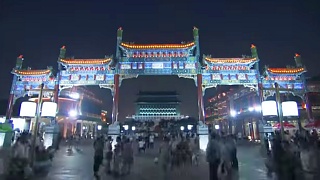Related Videos
Featured Videos

|
With BeiJing Liu ...
|

|
Opens in (early to mid) January and February (roughly, depending on the weather).
LóngQìngXiá lies not so far from Beijing city.
|

|
A mix of beautiful video and incredible photographs, all in Ultra HD / 4K
Yunnan province
|

|
With Walk East ...
|

|
With Walk East ...
|

|
HuBei province.
|

|
Best of the Tibet Amdo Losar New Year Gala 2016 ...
|

|
Night walk in an ancient town clinging to waterfalls.
With Walk East ...
|
 The fast guide to China 中国 …
The fast guide to China 中国 …








